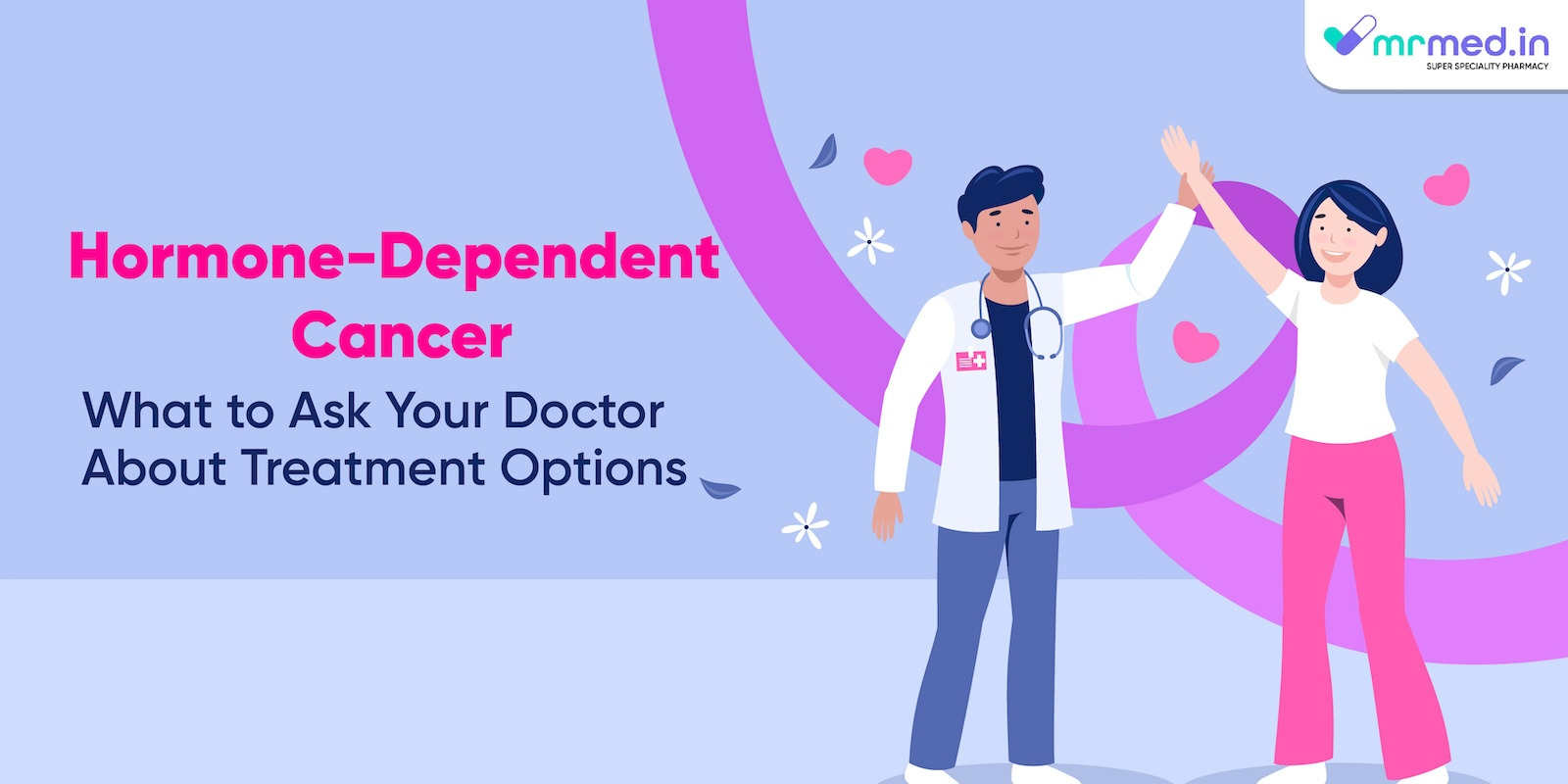Hormone-dependent cancers, such as breast, prostate, and certain types of ovarian cancer, thrive on hormones like estrogen, progesterone, and testosterone. People suffering from these diseases undergo a lot of trauma and anxiety; therefore, understanding the treatment options is important. Asking the right questions can help you navigate your treatment journey and make informed decisions. Here’s a comprehensive guide on what to ask your doctor about hormone-dependent cancer treatment options.
Knowing about cancer type, stage, prognosis, treatment options, and side effects are key aspects in cancer therapy. Therefore we are listing 9 important questions that you may ask your doctor before commencing the treatment.
What Type of Hormone-Dependent Cancer Do I Have?
Knowing the exact type of hormone-dependent cancer is essential as it influences treatment choices. Each type of cancer behaves differently and may respond uniquely to treatments. Ask your doctor to explain the specifics of your cancer type, including whether it is hormone receptor-positive or -negative. For instance, breast cancers can be estrogen receptor-positive (ER+), progesterone receptor-positive (PR+), or HER2-positive, and each subtype has different treatment protocols.
What is the Stage and Grade of My Cancer?
The stage and grade of the cancer help your doctor decide the next course of action. As we know, the cancer stage indicates how far the cancer has spread; similarly, grade gives an idea about how abnormal your cancer cells look under the microscope.
What is the Prognosis?
Prognosis helps patients to understand about the survival rates, chances of recurrence, next treatment strategies, and side effects associated with the medications. It helps patients to set realistic goals and expectations for treatment.
What Are My Treatment Options?
Surgery, radiation therapy, chemotherapy, and hormone therapy are the major treatment strategies used to treat hormone-dependent cancers. All these therapies have their advantages and side effects. Your doctor decides the most suitable treatment procedure after evaluating your health conditions, cancer stage, and type.
How Does Hormone Therapy Work?
Hormone therapy is one of the key treatment strategies used to cure hormone-dependent cancers. It works by blocking the body's natural hormones or lowering their levels, thus inhibiting cancer growth. Ask your doctor how hormone therapy will be incorporated into your treatment plan, which hormones will be targeted, and which medications will be used. Common hormone therapies include Tamoxifen and aromatase inhibitors for breast cancer and androgen deprivation therapy for prostate cancer. One of the classic examples of hormone therapy is Megahenz 40mg Tablet. It contains Megestrol hormone that has anticancer properties for breast and endometrial cancers.
What Are the Potential Side Effects of Each Treatment?
Each cancer treatment strategy comes with its associated side effects. The patients need to know about the long-term and short-term side effects associated with their treatment options. For example, hormone therapy can lead to symptoms such as hot flashes, fatigue, and mood changes, while chemotherapy might cause nausea, hair loss, and an increased risk of infections.
How Will Treatment Affect My Daily Life?
Some treatment procedures may impact your daily activities, work, and overall quality of life. Noting all these may help you plan your treatment effectively without hampering your daily life. For instance, some treatments might require frequent hospital visits or recovery periods that necessitate time off work.
How Will We Monitor the Effectiveness of Treatment?
Regular monitoring is essential to assess how well the treatment is working. Ask about the types of tests and scans that will be used, how often they will be performed, and what markers or indicators will be monitored. This might include blood tests for tumor markers, imaging studies like CT scans or MRIs, and regular physical exams.
What Happens If the Cancer Doesn’t Respond to Treatment?
It's important to have a contingency plan if the initial treatment doesn’t work. Ask about alternative treatments, including second-line therapies, clinical trials, and the potential for switching to different medications or treatment modalities. Understanding your options can provide reassurance and help you feel more prepared.
Going through hormone-dependent cancer treatment may be challenging. Asking the right questions helps the patients to plan their treatment properly. Further, these questions also help to design your work life, diet chart, and other concerns effectively. Understanding all the inherited complications in the treatment helps patients to combat cancer efficiently.




